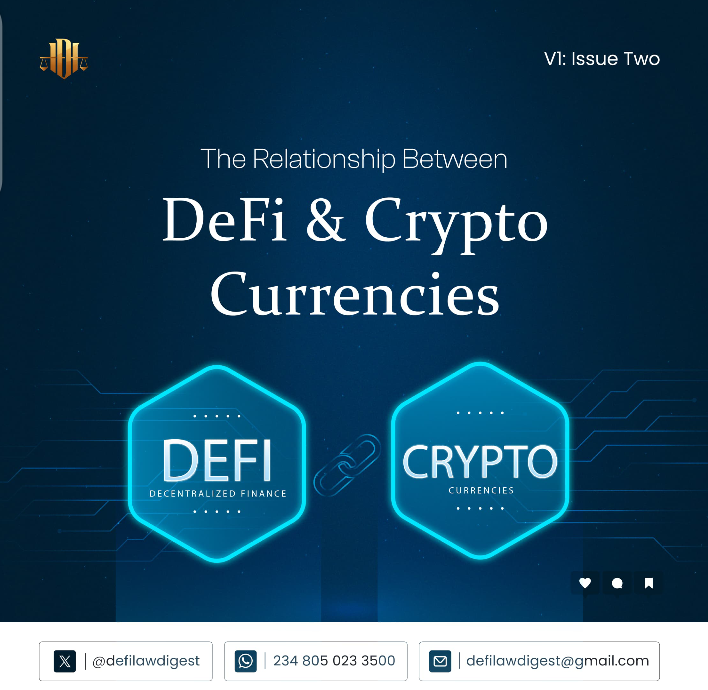By Ayomide Ogunsakin
“DeFi” and “Crypto” are often used interchangeably, so much that many people now think that they are synonymous.
However, as you will discover in this Issue, they are not the same!
We can first liken their position to the chicken and the egg argument:
“Which came first?”
The foundation of both concepts is traceable to Blockchain technology, which has come a long way since the birth of Bitcoin, the most popular crypto, in 2019.
So what’s their difference?
A cryptocurrency is a type of digital or virtual currency that uses cryptography —encrypted codes— to securely verify transactions.
It is also decentralized; meaning that its production and circulation are not entrenched in the hands of centralized authorities like banks or the government.
While Bitcoin is officially recognised as the first, several other cryptocurrencies have also emerged, including #Ethereum, #BNB (BSC), #Avalanche, #Arbitrum and #zksync; most of which exist on their own blockchains and some as Layer 2 chains on the Ethereum network.
DeFi, on the other hand, encompasses a wide range of financial applications built on the blockchain, which offer trading, lending, borrowing and other financial services.
It is an evolving phenomenon which introduces a whole new infrastructure of financial products and services, independent of centralized institutions, anchored on blockchain, and fueled by cryptocurrencies.
Although clearly distinct, both concepts embody a suite of technologies that allow people engage in peer to peer financial activities on the internet.
The convergence of both is in the sense that cryptocurrencies are the digital assets that aid the operation of various DeFi applications, protocols and services operative across blockchains.
Look at it this way.
Crypto is quite literally, the currency of the DeFi economy because it facilitates the financial services that DeFi offers.
𝑃𝑜𝑙𝑖𝑐𝑦 𝐼𝑚𝑝𝑙𝑖𝑐𝑎𝑡𝑖𝑜𝑛𝑠 𝑜𝑓 𝑡ℎ𝑒𝑖𝑟 𝐷𝑖𝑠𝑡𝑖𝑛𝑐𝑡𝑖𝑜𝑛
While cryptocurrencies may more easily fall within the ambit of extant regulatory provisions and are already being flagged as securities especially in the U.S, p as we would unravel in subsequent Issues of DLD, the DeFi ecosystem poses a higher challenge to regulators.
This is because the broader concept of DeFi, with its decentralized nature, will take a lot more digging for regulators to permeate.
Moreover, most SEC enforcement actions that have been brought to fore were against Centralized Exchanges.
The architecture of DeFi is far more multi-dimensional than crypto, so it would demand deeper insights to develop policies that can address its intricacies.
_Ayomide Ogunsakin, the brain behind the DeFi Law Digest, is a law undergraduate of Obafemi Awolowo University (OAU), Ile-Ife._
_She can be reached through email: defilawdigest@gmail.com_
Dear readers, we really need your support to keep on serving you with authoritative, truthful, and juicy stories everyday. For your support, please reach out to the editor @gavelinternational66@gmail.com

